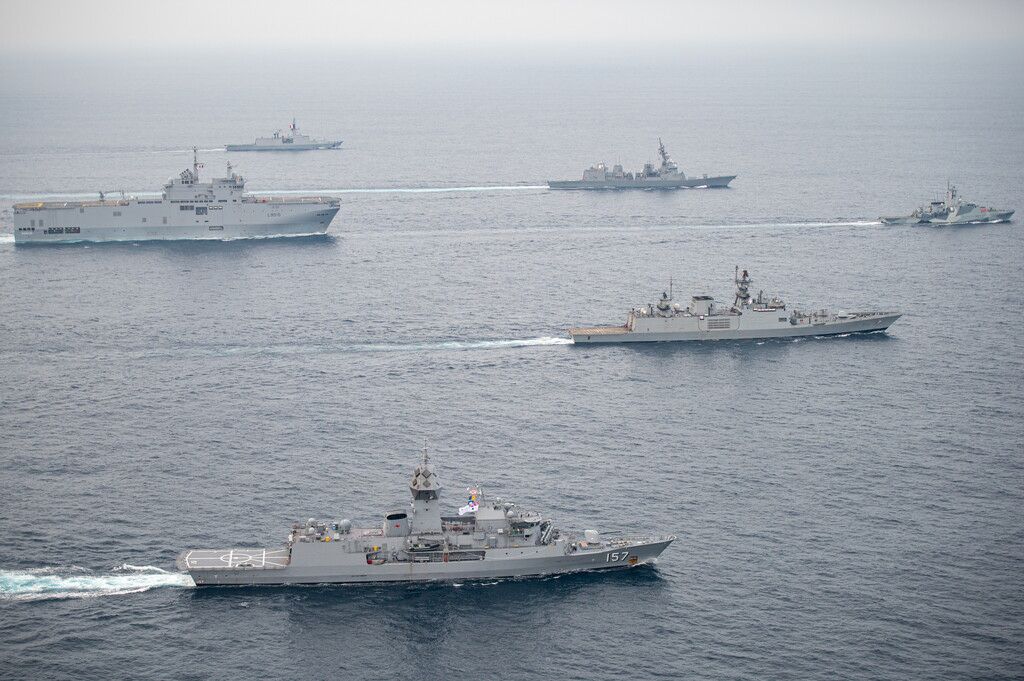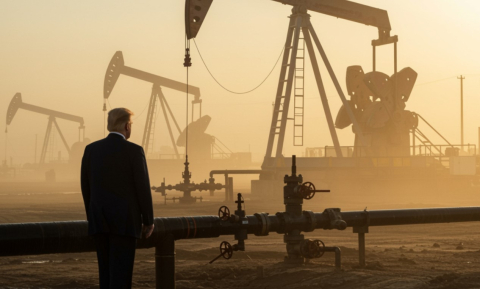Europe Yearns to Be an Indo-Pacific Player
There is a war on at home, but Europe’s strategic and naval aspirations are on the far side of the world. After years in search of a geopolitical identity, Europe is aiming to become a much bigger player in one of the most contentious spaces in international relations: maritime security, including in Asia.

Rebounding from years of anemic defense spending and a seeming aversion to hard power, Europe as a whole and many key member states are quickly boosting their attention to maritime security, both close to home and half a world away. That’s evident not just in the flurry of ambitious strategy papers raining out of Brussels, Paris, and London, but also in the increasing deployments of Europe’s small but capable navies to do more and in more places, securing contested waterways and clawing back respect for free navigation and global rules.
European naval missions are already operating in the Red Sea against Houthi missile attacks from Yemen, and more and more European frigates and even aircraft carriers are making tours of the Pacific as part of a continentwide shift to bigger and more sprawling responsibilities.
[...]
Individual countries are getting in on the act, too. The United Kingdom is aiming to double down on its own “tilt” to Asia. France, the only European Union country with territorial interests in the Indo-Pacific, is all in on bolstering its naval and diplomatic presence in the region to balance the rise of China and protect vital French and European economic interests. Even middle-sized geopolitical players such as Germany and the Netherlands have an Indo-Pacific strategy. Britain, France, and several other European countries have backed up aspirations with hulls in distant Pacific waters.
“The deteriorating security environment in the Indo-Pacific poses a significant threat to French and European interests,” said Jérémy Bachelier, a military fellow at the French Institute of International Relations.“While deterrence and military response efforts in the Indo-Pacific primarily rely on the United States, EU member states must now fully comprehend the global consequences of crises or conflicts in the region, such as those in the Taiwan Strait, North Korea, or the South China Sea.”
[...]
France, which for years under President Emmanuel Macron has sought to pursue what many see as a balancing posture, is increasingly leaning toward a more pragmatic view of what’s to come in the Indo-Pacific, Bachelier said.
“While Paris has yet to formally join groups like the Quad, composed of the United States, India, Japan, and Australia, it is taking part in more exercises than before with like-minded countries, such as the La Pérouse naval exercise” with India, he added.
[...]
The U.S. Navy has at any given time more than that just in its Pacific Fleet. And the smaller European navies—those of Italy, Spain, Germany, and the Netherlands—mostly comprise smallish frigates and a handful of amphibious ships. Still, French and British carriers, escorted by ships from other European nations, plan to head to the Indo-Pacific later this year and next, and both have trained to become increasingly interoperable with U.S. forces.
But that doesn’t mean that European warships would be able to directly support the U.S. and partner navies if war breaks out in the Pacific, either over Taiwan or the South China Sea, Bachelier said. The tyranny of distance—from northwest Europe to the South China Sea is about two weeks’ steaming—and the lack of local logistical support would make it tough for European navies to do much in the event of a conflict, even if they were willing.
A more indirect but ultimately more helpful role shaping the maritime environment in Asia could be played a little closer to home. European navies that have already begun operating against pirates and terrorists in the Red Sea and Western Indian Ocean could take that sea lane protection mission entirely on board, freeing up the U.S. and its partner navies to focus on the Pacific.
“If any conflict occurs in Asia, Europe will probably have to ensure the security and control of maritime flows and monitor the ‘rear bases’ between the Suez Canal and the Strait of Malacca,” Bachelier said. “European navies operating in the zone ranging from the Bab-el-Mandeb Strait to the opening of the Strait of Malacca in the Bay of Bengal could constrain Beijing’s strategic supplies while preserving European energy interests, without committing too far to the east.”
> This article is available on Foreign Policy website.

Media:

Share






